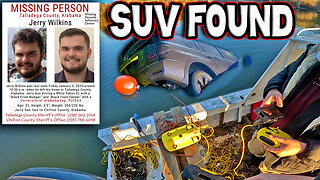Premium Only Content

Where To Buy & How To Play Import Famicom & Famicom Disk System Games
In this episode, we unbox and test out our latest import order of Famicom and Famicom Disk System games we received from Japan Retro Direct.
While while gaming in the US has been fun my entire life, there's something to be said about collecting import games, specifically games for the Nintendo Famicom and the Famicom Disk System. Much of the library is the same between both regions, but Japan got some enhanced versions of games, and games we did not get here. These are just some of the reasons why I collect for these systems now, but finding a reliable source of quality games to import can be a challenge. That's why I'm thankful for Japan Retro Direct, run by Kevin, also known as Vinnk from Famicom dojo, and located directly in Japan.
In total, I recently ordered six titles, four cartridges and two disk system games. Nothing here is what I would consider to be a hidden gem, but each one has its own uniqueness which adds to why I wanted to collect them in the first place.
Starting with the cartridges, I picked up Major League, Wario's Woods, Rock Man 5, and Mario Open Golf. None of these were super expensive, Rock Man 5 being the Japanese counterpart to our Mega Man here in the States was considerably less expensive than if I would have bought the English North American version instead. And for me, as a fan of the Milwaukee Brewers, having grown up in Milwaukee where they filmed the movie Major League, I told myself that if I ever saw a copy of the Major League Famicom game for sale I was going to buy it. And now I have.
The next two games I bought were for the Famicom Disk System. I picked up Exciting Basket, which in the US we know as Double Dribble. It's an inexpensive title for the system, and still just a lot of fun. One of the things that I love most about Double Dribble is seeing 8-bit Brody go to different conventions and seeing what he can trade Double Double up to. I've seen him get thousands of dollars worth of games all starting with Double Dribble.
The final title I picked up was Castlevania 2, Simon's Quest. This one might be a challenge for me to play since it has so much dialogue in the game and I do not speak Japanese. However, it does have an enhanced soundtrack over what the NES version had, which is the main reason why I wanted this version. It's also one of the reasons why I collect for the Famicom Disk System, the enhanced audio really does make a difference in the games for the system.
Playing import games in the US is fairly easy, and you have multiple options. You can use a Famicom and a Famicom Disk System themselves as they will work on US TVs and US power supplies. The original Famicom only features RF output so you need to use an RF modulator, and unlike here in the US where we had the options to switch to channel 3 or 4, for a Japanese system it's like channels 94 and 95 or something like that. Nintendo later released the AV Famicom, a system that actually outputs composite video without any modification. This is vastly superior. My preferred method if I'm going to use original Famicom hardware, however, is to use a Sharp Famicom Twin Turbo, which houses both a Famicom cartridge system and a Famicom Disk system all in one case. They also have much longer controller cords as well.
If you don't have a Famicom but you have an NES you still have excellent options on how you can play! Many companies including Hyperkin sell a 60-to-72 pin adapter which will allow you to insert Famicom games into either a front loader or top loader NES. If you have a top loader, you can also use this adapter to plug the RAM cart adapter and from a Famicom Disk System to be able to play it through a top loader NES.
I love playing my import games, and I love having a reliable source to purchase them from. Make sure you check out Japan Retro Direct and everything that Kevin has on his website. There's truly something here for everyone, including those of you who collect for the Wonderswan!
The footage used in this review are used under the Fair Use laws, referenced below:
-
 20:46
20:46
RoXolidProductions
10 months ago $0.02 earnedThis Nintendo Switch Grip Comes IN CLUTCH + Blows the Split Pad Out of the Water
1955 -
 LIVE
LIVE
tacetmort3m
1 day ago🔴 LIVE - SOLO RANK GRINDING CONTINUES - MARVEL RIVALS
2,970 watching -
![Shadows Of Chroma Tower, Alpha Playtest [Part 1]](https://1a-1791.com/video/fwe2/1d/s8/1/5/Q/U/n/5QUnx.0kob-small-Shadows-Of-Chroma-Tower-Alp.jpg) 13:29:21
13:29:21
iViperKing
16 hours agoShadows Of Chroma Tower, Alpha Playtest [Part 1]
100K4 -
 54:05
54:05
TheGetCanceledPodcast
14 hours ago $12.36 earnedThe GCP Ep.11 | Smack White Talks Smack DVD Vs WorldStar, Battle Rap, Universal Hood Pass & More...
107K19 -
 13:37
13:37
Exploring With Nug
18 hours ago $7.11 earnedSUV Found Underwater Searching For Missing Man Jerry Wilkins!
71.6K4 -
 2:58:21
2:58:21
xBuRnTx
13 hours ago1st Warzone Stream Online
53.5K2 -
 6:10:21
6:10:21
JdaDelete
1 day ago $15.67 earnedDino Crisis - Sega Saturday
122K5 -
 23:22
23:22
MYLUNCHBREAK CHANNEL PAGE
1 day agoUnder The Necropolis - Pt 5
101K55 -
 2:26:11
2:26:11
Jewels Jones Live ®
2 days agoWINNING BIGLY | A Political Rendezvous - Ep. 108
157K47 -
 2:04:49
2:04:49
Bare Knuckle Fighting Championship
4 days agoBKFC FIGHT NIGHT MOHEGAN SUN FREE FIGHTS
82.5K7